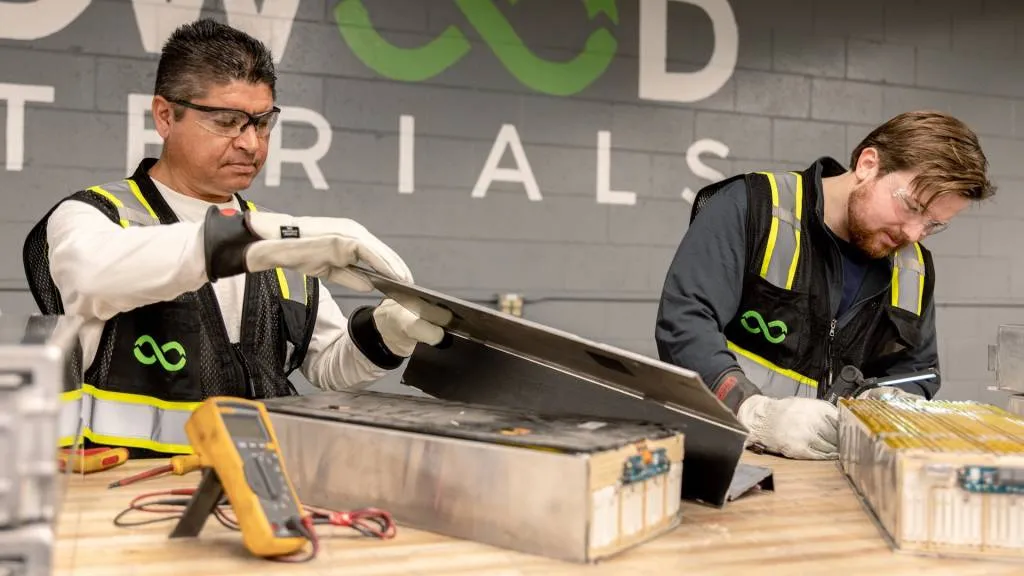China is leading the U.S. and Europe on EV battery recycling, according to a new Bloomberg report, and it may add to China’s EV advantages in the future.
The battery-recycling business in China is booming, according to the report, which cites data from consultancy Circular Energy Storage showing that “the nation dominates when it comes to preprocessing and materials recovery.” And Circular Energy Storage expects China to have nearly four times as many batteries to recycle by 2030 than it did in 2021.
Granted, as described by Bloomberg, the current Chinese battery-recycling industry has a bit of a Wild West vibe. The report describes individuals posting advertisements on social media to track down recyclable batteries as part of a large gray market.
2018 Nio ES8
China does have national standards for the dismantling of battery cells and the transportation of battery components, including a rule that stipulates batteries must make trips to a recycling facility in trucks equipped with smoke alarms and be shipped in flame-retardant and heat-resistant containers. But government-issued guidelines and regulations are difficult to enforce and often flouted because they add to the cost of recycled materials, the report noted.
Industry guidelines also dictate that recycled batteries yield 98% of original cobalt and nickel content and 85% of lithium. Those are important targets for China, which imports more than 90% of its cobalt and nickel, and more than half of its lithium, the report notes.
But increased battery recycling has greater significance for the global auto industry. It’s a key component in achieving a so-called circular economy, in which the materials used to make goods are recycled once a particular item—in this case a car—has reached the end of its useful life. That could dramatically lower the environmental impact of EVs by lessening the need for extracting new raw materials from the earth.

Toyota and Redwood Materials battery recycling
The Biden administration has aimed to prioritize U.S. EV battery recycling, in part of address supply-chain shortages of raw materials. But a 2021 report from research firm Wood Mackenzie predicted that the battery-recycling market won’t heat up until 2030, in part because, for now, new battery packs are cheaper.
But some automakers such as Toyota are aiming specifically to recycle prolific hybrid models, toward more future EV batteries. BMW has also thought about what it might take to make the vehicle and its battery and drive system entirely part and product of a circular economy.
Another option, though, is reusing EV batteries in other applications, such as energy storage, rather than recycling them. And in light of this changing economy and circularity, there’s not always a clear answer about whether it’s best for degraded EV batteries to be reused or recycled.
Read the full article here



